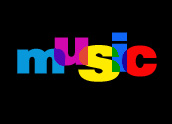
Subscribers toMicrosoft’s defunct MSN Music service will lose access to songs they purchased from the store in a few months.
Microsoft informed MSN Music’s customers via e-mail Tuesday that it plans to turn off the store’s license servers, and that Aug. 31 will be the last day to move purchased music to another computer. Customers won’t lose the music they already downloaded on authorized computers; they simply won’t be able to transfer songs to unauthorized computers or different operating systems after the deadline.
The company shut down the service late in 2006 and replaced it withZune Marketplace.
Rob Bennett, general manager of MSN entertainment and video services, confirmed the move and recommended that customers “back up purchased music to CDs and obtain all licensing for their songs prior to Aug. 31.”
Download Tunes – or Else
Customers won’t lose the music they already downloaded on authorized computers; they simply won’t be able to transfer songs to unauthorized computers or different operating systems after the deadline.
The downloaded music is formatted with digital rights management technology, which prevents unauthorized duplication. The only alternative to downloading the songs is to burn the files on audio CDs and duplicate them as DRM-free MP3 files.
Not surprisingly, the decision has stung many customers of the service.
“Microsoft has never been afraid to alienate its customer base,” Yankee Group analyst Mike Goodman told the E-Commerce Times. “I sort of say that tongue-in-cheek, but I don’t think it’s particularly surprising. Buyer beware.”
The latest move is just another step in allowing MSN Music to disappear completely, he noted. “Zune was going to be their music initiative. They said they’d support MSN but never made a long-term commitment to do that.”
Microsoft launched MSN Music in 2004 in an attempt to compete with Apple’s iTunes — but it never caught on.
Microsoft had to begin the total shutdown of MSN Music at some point, Goodman pointed out. “I’m sure the numbers have just dwindled and, at a certain point, it’s just not worth supporting it anymore. By now, you’re not going to alienate too many people. If you’re one of the unlucky few, you’re probably not going to be a happy camper.”
Another Dent for DRM
The change does nothing to alter the bad reputation that DRM music has gotten, especially with DRM-free tunes available at Amazon.com and other retailers.
“It points out the perils of DRM,” Greg DeMichillie, lead analyst at Directions on Microsoft, told the E-Commerce Times. “If you bought a bunch of music from MSN, and are [now] told you won’t be able to play any music on any new computer you buy, my guess is it’s going to sour you on it. All of a sudden, a file-sharing site looks a lot more attractive. It’s one more nail in the coffin for DRM in general.”
However, Microsoft’s cutoff of MSN Music customers isn’t the major problem facing the Zune Marketplace, he commented. “The biggest problem is getting people to even look at it. The software is a big improvement over what they had before, [and] the price is the same as iTunes. What they need to do is innovate twice as fast as Apple to have any chance of catching up, and so far we haven’t seen any signs of it.”
Not that Microsoft ever held out any realistic hope of catching Apple’s iTunes, he continued. “Microsoft’s goal with Zune isn’t to make any sizable dent in iTunes. They want to get to No. 2.”
Microsoft probably realizes it has a long way to go to reach that goal, said DeMichillie, adding that the company’s first order of business should be to develop a better player. “The devices and software don’t offer somebody looking at an iPod a reason to switch.”





















































Social Media
See all Social Media